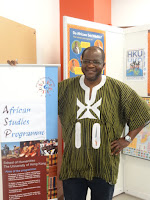With unrestricted access to little-used local, county and provincial archives, Dikötter made his mark with the first book of the trilogy, Mao's Great Famine: The History of China's Most Devastating Catastrophe, documenting how at least 45 million people died in the largely man-made famine of 1958-62. It won Britain's most prestigious book award for non-fiction, the Samuel Johnson Prize, and was also a HKU Research Output Prize winner.
His second book in the trilogy, The Tragedy of Liberation, challenges the view that the birth of the People's Republic heralded a benign period after years of civil war with Chiang Kai-shek's Nationalists and occupation by the Japanese. It details how Mao Zedong and the Communists consolidated their hold on power after the end of World War II to 1957 through a systematic wave of terror that included the confiscation of all property, the incitement of neighbours to kill each other and quotas for official executions, paving the way for the disastrous Great Leap Forward. Published in 2013, it has been well received all around the world, creating much anticipation for the final part of the trilogy on the horrors of Cultural Revolution.
(Text reproduced from Faculty of Arts 100: A Century in Words and Images.)
Please click on the following link to access the publisher's page:
Mao's Great Famine: http://www.bloomsbury.com/uk/maos-great-famine-9780747595083/
The Tragedy of Liberation: http://www.bloomsbury.com/us/the-tragedy-of-liberation-9781620403471/
















